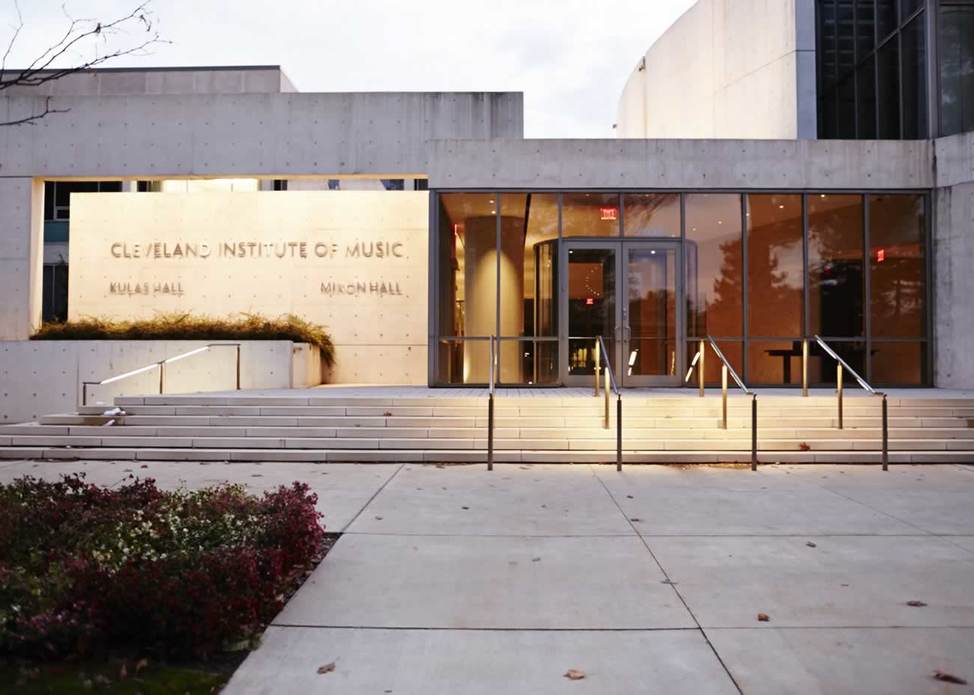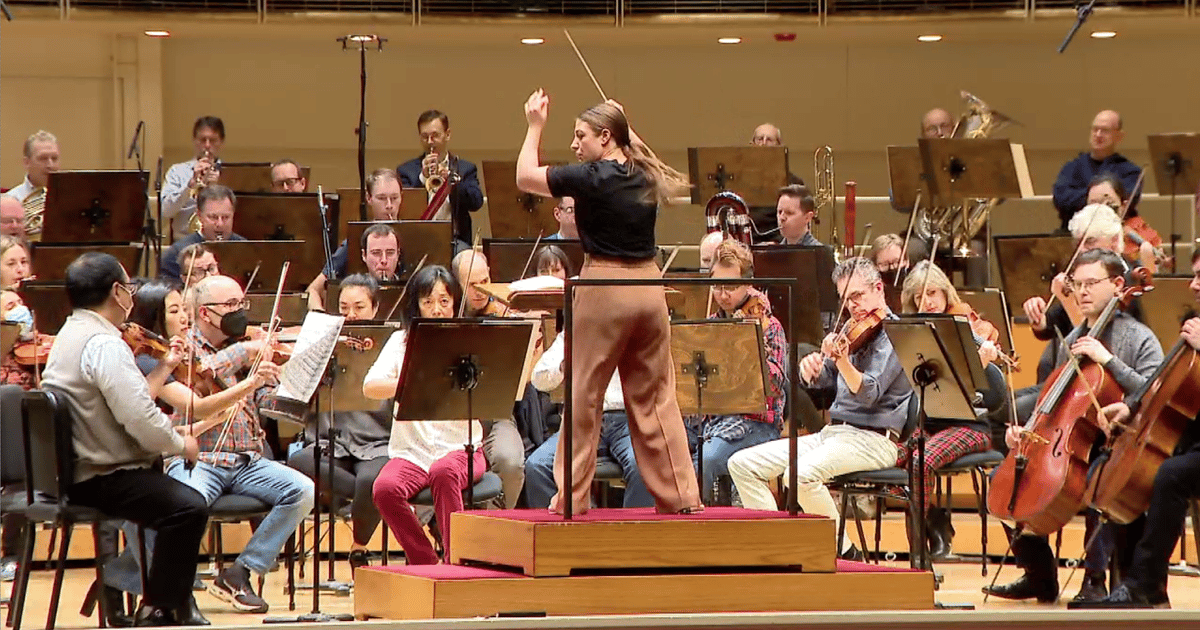Did singing the national anthem boost Diva Joyce’s record sales?
mainSadly not.
Despite prime time network TV, oodles of print media and an international social media hoopla, Joyce DiDonato’s current album sold just 86 copies in the US last week, coming in at number 15, two spots behind the Danish String Quartet.
The only album that sold in respectable numbers – 3,952 – was an Andrea Bocelli rehash compilation.
This is, by any measure, profoundly depressing for the music industry.
What does an artist have to do nowadays to sell records?






I’m probably naive, but maybe she didn’t sing the National Anthem to boost her record sales, or give opera singers more exposure, or bring new listeners into the concert hall or opera house, or for any other calculating reason.
Maybe she did it because she grew up in Kansas City, is a Royals fan, and thought it would be a fun way to support for her home team.
Exactly, David. As a big baseball fan, I completely get why Joyce D. sang for her hometown team. Folks can be as critical of her performance as they want–what I saw was a fan who was able to check a something very special off her bucket list. Would I could sing, I’d want to do that myself! Sometimes, it really is about love, not commerce.
Why don’t classical CDs sell in general? It appears that it’s because classical labels are clueless about 21st century promotion and artists don’t seem to really care.
I get the impression sometimes that classical labels and artists think buyers will know about their CDs through ESP. They promote performances without mentioning them, they don’t sell the CDs openly at most performances. There aren’t ads anywhere online like you see for most CDs. No CD give-aways or Q&As. No fun videos designed for the way people watch youtube today. It’s the same, old, tired formula.
I was shocked but not surprised that Warner didn’t purchase google ads that popped up on everything mentioning Joyce’s performance online. Are the labels that poor? Then why release the albums?
Ms. Fleming’s Christmas CD is another case in point. It’s designed for promotion, but it has none. No displays in the stores, no cross promotion at venues in NY that may sell the CD (NY coffee houses anyone?), no ads anywhere online, no sales at any of her performances in Chicago, no online Q&As or giveaways. Not even any mentions of the CD in her copious press about performances.
Even at Carnegie Hall or other houses that actually sell things, the CD stores are tucked away and most audience members never see them. They’re also often stuffy. Why don’t the artists sell the CDs at performances at tables near the doors as every other artist does?
The worst problems are lack of videos that will catch the attention of audiences, and no attempts to make physical CDs that may contain already available material attractive or of interest.
It does seem that there is zero effort to do anything that is currently required in today’s environment to sell albums.
Don’t get me wrong, DiDonato and others are breaths of fresh air compared to most, but it’s just not enough.
She was wonderful in Carnegie Hall’s first-ever livestreaming of a concert last night. I would imagine the online audience was large and it might help sales now? I was incredibly impressed with her rapport with the audience and that she took the time to mention Carnegie Hall and how lucky the music world is to have it. Oh, and the programming was pretty unique, too. Check out her album sales again in a few days? http://www.businessinsider.com/afp-seeking-broader-audience-carnegie-hall-starts-webcasts-2014-11
But how would those watching the stream know about the CD? There was no ad on the page to watch. There was no mention anywhere. She was wonderful, but no one was provided the opportunity to click through and purchase anything.
They could have done what most labels do now and suggest the purchase of the CD when a ticket is sold online. A ticket-CD bundle. This is common now, but not in classical circles.
There could have been a giveaway online for those who watched, or a discount code given online during the performance. But as it stands, no one watching that performance would know that Joyce has any CDs at all.
I, and no doubt others, have listened to JDiDo’s new CD lots of times, but i don’t own a copy. I can hear it all I like using Spotify. Buying CDs is the “old way” to consume music. You need to consider both downloads and streaming services – both are actively promoted on Joyce’s website.
Nobody goes to websites much anymore (Facebook, Tumblr, Twitter and Instagram rule), but downloads are included in the 38 copies sold.
It’s not complicated – as we saw with Taymor Swift’s rebuff of Spotify (and basically all streaming services), it’s taken too long but there’s finally some understanding that streaming is a scam. Artists don’t make any money and Spotify’s protest that they pay out 70% of their income to artists is laughable – perhaps after all their rent, salaries, and everything else is taken into account.
I say this as a consumer and a Spotify user. It’s great for consumers, but it’s simultaneously destroying the future of music. If there’s only sales of 86 units of one of the great opera singers of our time, guess what? It won’t be worth it to anyone to actually make the record.
The same goes for Medici TV. There’s no money in it. And for Medici, it’s not cheap! Meanwhile, everything is on YouTube for free. Somehow everyone is afraid of Google’s legal team and we await some brave soul (never thought it would be Taylor Swift) to take them on with high visibility.
Brick and mortar stores are all gone. The only thing that matters IS visibility. The great artists of our time are those who can bring themselves to the front of the conversation. Making a living? That’s almost a secondary concern.
Opera is not a for-profit industry. Believe it or not, because the emphasis has always been on live performance, a singer like Joyce DiDonato makes a lot more money than you’re average well-known band. A fee of $15,000 per performance – for a singer who can sing three or four roles in a year and 40-50 performances all together adds up. This marks the happy end to the “recording artist” like Brittany Spears. Since the records don’t make anyone any money (see U2 giving their record away), the emphasis is on live performance. Bocelli’s fee for a stadium is probably $2 million. I bet he hasn’t made 2 million from record sales in almost 10 years.
Yes, there are problems because of streaming, but these explanations would have a lot more value if we looked at the albums and saw any promotion happening. You can’t say promotion doesn’t work if there isn’t any.
There is absolutely no reason that with performances happening all the time, these artists can’t sell over 50 copies of a CD. There’s no reason they can’t provide something on their physical CDs that makes them desirable. There are numerous ways to sell over 50 copies of a CD. I mean 38? That’s really pathetic, and not Joyce’s fault. She’s busy being spectacular all over the world.
The classical labels are giving up or are clueless. They are ceding the CD space just as they ceded the television space. Instead of adapting, they’re retreating.
Did you see Joyce’s CD relaase party? They barely mentioned the CD. I just don’t understand.
Even under the rainbow… 86 copies… such an ingratitude…
Having spent 15 years working for 2 major classical labels, I can say with authority that the incompetence of their marketing directors knows no limits. The recording industry truly sank itself: They worked damned hard at it, and have succeeded brilliantly!
Joyce always has CDs for sale (and she is usually there to sign them as well) after her concerts. I was at the Barbican a month ago and her new CD just sold like hot cakes. They probably sold 86 that night in London. When I was at her Drama Queens concert in Carnegie Hall end of 2012 (and she was signing) they ran out of CDs. I think people have raised some really valid points in this discussion about marketing, give aways, linking CD to ticket sales and so on. As a classical music performer, Joyce is pretty clued up on using social media and I expect to see her pick up on some of these suggestions.
Marguerite, thank you for the information on CD sales at Joyce’s concerts. I’m so glad to hear this. Do you think these sales are included in the figures given by Billboard? It doesn’t seem it to me.
I should have known Joyce would be leading the way in this regard.
Does the 86 copies include downloads?
I’ve not bought a CD in years, yet regularly buy classical music downloads. I also subscribe to streams from Tidal and Berlin Philharmonic Digital Concert Hall.
I think that a discussion such as this needs to be centered on all facets of modern technology.
Augustine,
Yes, the US figures always include downloads. I wish there were more customers like you!
Where do you find these charts?
Once you have heard Ms. DiDonato sing you understand why she sold only 86
copies .To believe she sang the
anthem however poorly just for the joy
of singing for the home team is to
believe the moon is made of green cheese .To compare DiDonato with
Bocelli is no comparison at all ,his
sales reflect an audience that buys
into his show biz schtick …her opera audience one suspects is a lets make do audience who would have collective heart failure if they came
face to face with the “art “of singing .
Perhaps in the long run the difference
between the Bocelli and DiDonato
audience and record sales is that
the Bocelli crowd gets what it pays
for and the DiDonato crowd pays for
whatever it gets .
Just to put this in perspective, in the same week that JoDiDo sold 86 copies of her CD, 24 year old rock star Taylor Swift sold over 1.2 million copies of hew new CD.
Clearly people are still buying CDs.